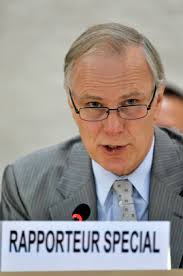The following evidence was given to the United Nations Special Rapporteur on Extreme Poverty Philip Alston by our Welfare and Advice Coordinator Aine Malone last Saturday at a session organised by the Law Centre.
“Thank you Mr Special Rapporteur and Law Centre for this opportunity. Relatives for Justice locates all of its work with victims of our conflict in international human rights norms.
“The lives that our members have lived and continue to survive appear to be without human rights frameworks to rely on. The British Government is in regular violation of its duties under human rights law to victims of our conflict.
“Victims suffered extreme human rights abuses and violations during our conflict, for which most, particularly those affected by state actions, have had no accountability or recourse in law. Most victims and survivors, in particular those who experienced violent bereavement and physical injury, came from areas of extreme disadvantage, poverty was already endemic following years of structural economic discrimination. Following the violations these individuals’ experience of poverty became and continued to be extreme and multi-generational. Families have not had an opportunity to recover.
“While there have been some partial schemes of compensation, there has been no programme of human rights compliant reparations for victims and survivors of the conflict addressing the social and economic harms that accompanied the physical and emotional violations they experienced. This compounds the issues.
“The impact of welfare “reform” has disproportionately affected victims and survivors and in particular women affected by conflict harms. 91% of those killed were men. Surviving women bore the brunt of poverty and disadvantage. However, there is no methodology to record this or assess impact in order to influence either welfare decision making or measures to deal with the past.”









